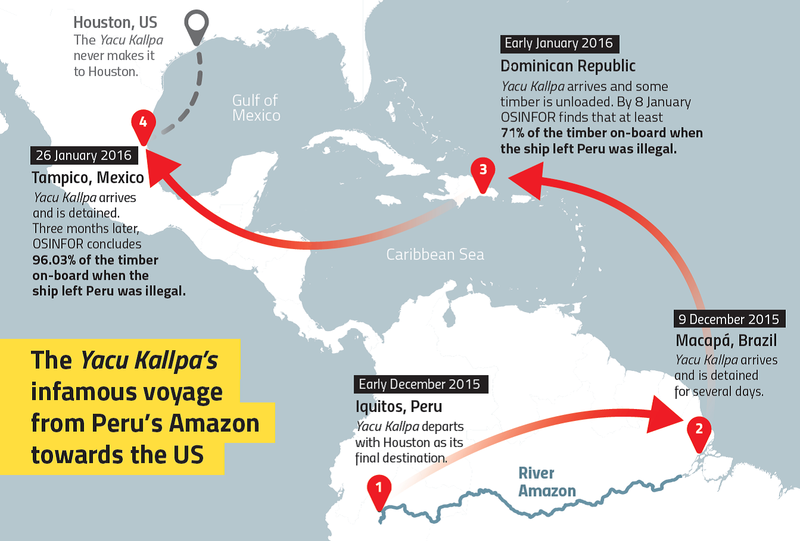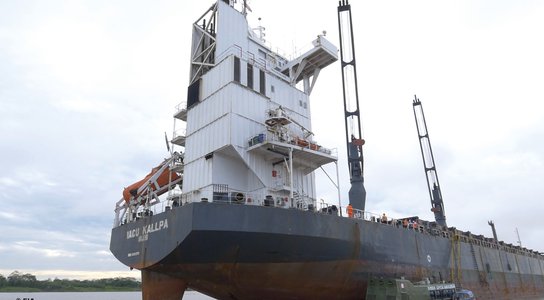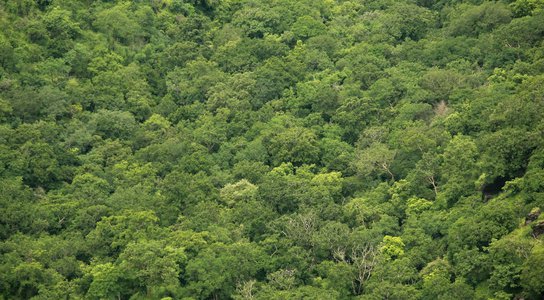Global Witness’s undercover investigation exposes some of the major exporters involved in Peru’s biggest timber scandal - the Yacu Kallpa ship sailing from the heart of the Amazon towards the US.
Companies caught up in the Yacu Kallpa scandal knew or had reason to suspect their exports from the Amazon rainforest were illegal, according to undercover footage. See our full video evidence series >>
FALSIFIED DOCUMENTS
The timber was transported out of the Amazon on the Yacu Kallpa in late 2015, but the ship was later detained in Mexico, en route to the US. Ultimately, more than 96% of the timber on board was found to be illegal.The major exporters claimed their timber had the correct accompanying documents, but in Peru, where regional government corruption is rampant, such documents are often falsified and used to launder illegally extracted timber. This is what our undercover footage exposes: that the exporters, despite what they claim publicly, are aware that the documents do not guarantee legal origin.
Global Witness's footage is believed to be the first time timber exporters in Peru have been caught on camera acknowledging that documents are often falsified. It gives an insight into the scale of corruption that allowed the Yacu Kallpa scandal to happen.
THE YACU KALLPA
A public prosecutor had attempted to seize some of the timber on the Yacu Kallpa before it left Peru, as part of a trail-blazing national and international crackdown on illegal Peruvian timber exports dubbed Operación Amazonas. The prosecutor effectively failed, permitting the ship to leave with a full cargo. Its subsequent detention in Mexico, together with the previous shipment having been blocked from entering the US, turned the Yacu Kallpa into the biggest timber scandal in Peru’s history.
It contributed to protests in Iquitos and another city, Pucallpa, where the office of the government’s forest inspection agency, OSINFOR, was fire-bombed, and it effectively cut the only direct timber export route from Peru’s Amazon to the US, given that the Yacu Kallpa was the only ship operating on it. Under pressure from the timber sector, the new law allowing public prosecutors to seize timber was weakened, and OSINFOR’s president, Rolando Navarro, was sacked and forced to flee the country in fear for his life.

The timber detained in Mexico was all released in late 2016 despite OSINFOR proving it was illegal, according to Peruvian media outlet OjoPúblico. Their report claims that decision was made by Mexican authorities without informing Peruvian prosecutors, following pressure from the Peruvian and Mexican timber sectors.
HOW THE ILLEGAL TIMBER TRADE AFFECTS PERU’S AMAZON
The trade in illegal timber has numerous serious impacts on Peru and Peruvians, fostering widespread corruption and furthering the exploitation and invasion of indigenous peoples’ land and resources. In addition, it contributes to the unsustainable deforestation and degradation of the Amazon basin – a major source of carbon emissions and cause of climate change – and is widely reported to involve, or to be connected to, assassinations, forced labour, tax evasion, prostitution, human rights violations, land-trafficking, narco-trafficking and organised crime.
Many thousands of Peruvians in the Amazon are dependent on the timber trade for their livelihoods. Illegal or corrupt operations by comparatively affluent exporters, sawmills, government functionaries, forestry consultants and other ‘middle-men’ companies or buyers expose those people to unnecessary, unfair risk and potential prosecution and imprisonment, while the real profiteers go unpunished.
OUR KEY RECOMMENDATIONS
Public prosecutors specialising in environmental crimes in Iquitos and two other towns in Peru’s Amazon are currently investigating the late 2015 Yacu Kallpa shipment.
In light of the undercover footage obtained by Global Witness – together with the other arguments made in our report – we urge the prosecutors to:
- Continue their investigations into the Yacu Kallpa.
- Among the representatives of the exporters being investigated, prioritise whether to prosecute those regularly exporting the biggest quantities, such as Inversiones La Oroza, Inversiones WCA and Corporación Industrial Forestal.
- Investigate whether to prosecute other representatives from the exporters not currently being investigated, such as Sico Maderas’ Dante Zevallos.
- Among the regional government functionaries being investigated, prioritise whether to prosecute those who continue to hold public positions.
- Among the forestry consultants being investigated, prioritise whether to prosecute those who continue to be able to write and sign harvesting plans.
- Investigate whether to prosecute ‘middlemen’ companies in the supply-chain, none of which are currently being investigated.
- Request the Ministry of Economy and Finance to provide more resources to continue with the investigations as effectively as possible.


